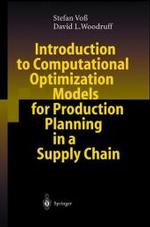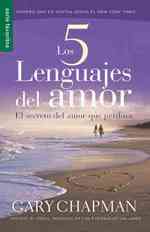Full Description
The Art and Science of Teaching provides students with a broad introduction to teaching and education in contemporary U.S. society. The book includes chapters that address such issues as:
The Purposes of Public Schooling
The Legal and Organizational Foundations of Public Schooling
The Epistemology of Education and Learning Theories
Schooling, Education, and the Educated Person
Curriculum and Instruction
Philosophy of Education and Reflective Practice
Culture, Cultural Diversity, and Schooling
Race and Racism in Schooling
Religion and Religious Diversity in U.S. Society
The Ideals of Democratic Education
This book, written by two experienced teachers and teacher educators, will be of value for both students who intend to become teachers themselves and for anyone who will be a future parent or citizen and wishes to better understand the American educational system.
Contents
Preface
Acknowledgments
Abbreviations
Tables
Chapter 1 The Purposes of Public Schooling
Basic Knowledge and Skills
General Knowledge
Life Skills
Vocational and Career Preparation
The Transition to Adulthood and Entry into the Labor Market
Political Socialization
Social Control
Socialization and Acculturation
Religious Socialization
Health Care
Mandated Reporting
Providing Nutrition
Childcare
The Creation of Employment Opportunities
Questions for Reflection and Discussion
References
Chapter 2 The Legal and Organizational Foundations of Public Schooling
The Branches of Government: The Federal Level
The Legislative Branch
The Executive Branch
The Judicial Branch
The Branches of Government: The State Level
The Legislative Branch
The Executive Branch
The Judicial Branch
The Branches of Government and Public Schooling
The Legislative Bran
Chapterand Public Schooling
The Executive Bran
Chapterand Public Schooling
The Judicial Bran
Chapterand Public Schooling
Education at the State Level
Public Schooling at the Local Level
Questions for Reflection and Discussion
References
Chapter 3 The Epistemology of Education and Learning Theories
Epistemology and the Philosophy of Science
Ethnoepistemology
The Nature of Knowledge
Metaphors in Educational Discourse
Theories of Learning
Behaviorism
Cognitivism
Constructivism
Lev Vygotsky and the Zone of Proximal Development (ZPD)
Bloom's Taxonomy
Learning Styles
Questions for Reflection and Discussion
References
Chapter 4 Schooling, Education, and the ""Educated Person""
Schooling
Education
The Attributes of Education
The Procedural Criterion
The Nature of Training
The Ideal of the ""Educated Person""
Alternative Conceptions of the ""Educated Person""
Robert Maynard Hutchins
John Dewey
Mortimer Adler
Questions for Reflection and Discussion
References
Chapter 5 Curriculum and Instruction
The Curriculum
The Planned and Unplanned Curricula
The Excluded Curriculum
The Hidden Curriculum
The Historical Evolution of the Curriculum in the United States
The Curriculum and the Textbook
Curricular Nullification
The Role of Interdisciplinary Units in the Critical Curriculum
Instruction
The Acts of Teaching
Questions for Reflection and Discussion
References
Chapter 6 Philosophy of Education and Reflective Practice
Developing a Personal Philosophy of Education
Philosophical Schools of Thought
Analytic Philosophy of Education
Reflective Practice and the Classroom Teacher
The Knowledge Base of the Classroom Teacher
The Real World of the Classroom Teacher
Reflective Practice in the Classroom
From Reflective Practice to Critical Reflective Practice
Critical Literacy and Education
A Caveat
Questions for Reflection and Discussion
References
Chapter 7 Culture, Cultural Diversity, and Schooling
What Is Culture?
Language
Attitudes, Values, and Beliefs
Family and Kinship
Gender Roles and Expectations
History and Mythology
Foods and Eating
Sanctions and Taboos
Cultural Diversity and Cultural Pluralism
Cultural Diversity and Education: Multicultural Education
Questions for Reflection and Discussion
References
Chapter 8 Race and Racism in Schooling
The Social Construction of Race
The History of Race and Racism in the United States
Toward a Typology of Racism
Understanding Prejudice and Discrimination
The Concept and Reality of White Privilege
Anti-Racist Education and Public Schooling
Questions for Reflection and Discussion
References
Chapter 9 Religion and Religious Diversity in the United States
The Religious Diversity of the United States
Teaching About Religion in Public Schools
Christianity
Is the United States a ""Christian Nation""?
Are There Anti-Christian Biases in American Society?
Judaism
Anti-Semitism in American Society
Islam
Islamophobia in the United States
Other Faiths and Public Schooling in the United States
Questions for Reflection and Discussion
References
Chapter 10 Politics, Ideology, and Schooling: The Ideals of Democratic Education
Education and Democracy
Education in Democracy
Education for Democracy
Democratic Education
Critical Pedagogy and the Teacher
Social Justice and Public Education
Questions for Reflection and Discussion
References








